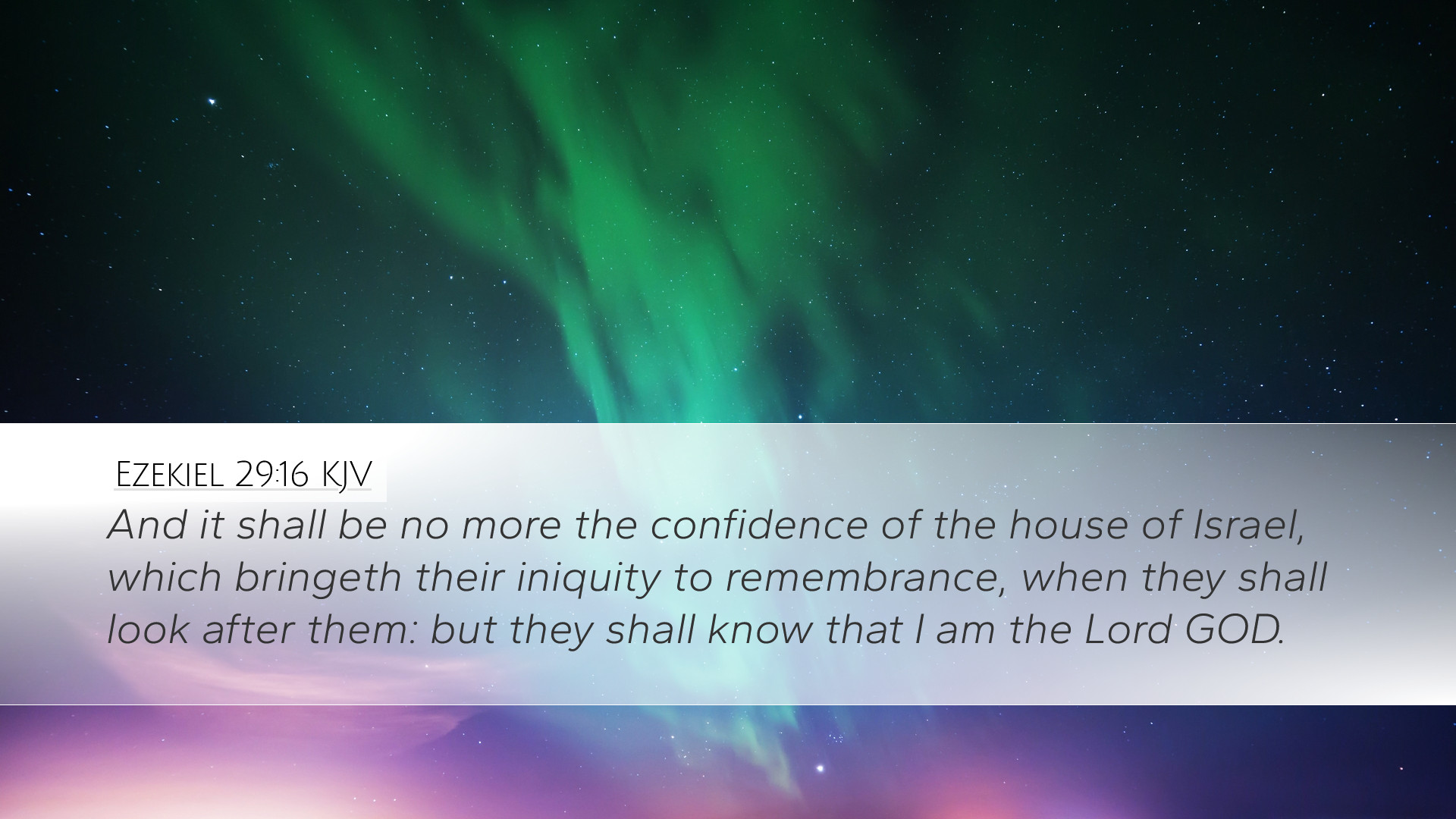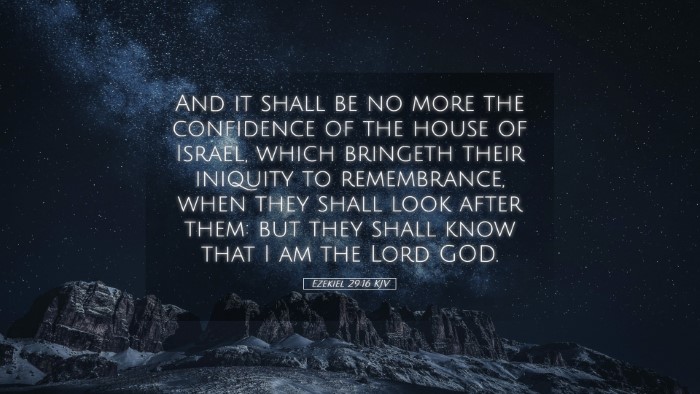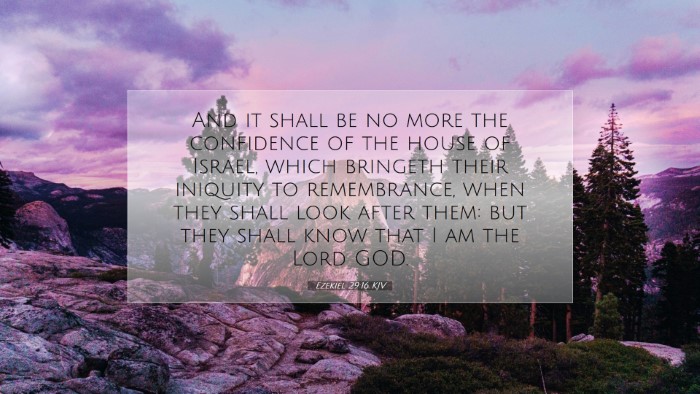Ezekiel 29:16 Commentary
Verse: "And it shall be no more the confidence of the house of Israel, which bringeth their iniquity to remembrance, when they shall look after them: but they shall know that I am the Lord God." (Ezekiel 29:16, KJV)
Contextual Background
The prophecy of Ezekiel occurs during a tumultuous period in Israel's history, marked by the Babylonian exile. In this context, God speaks through Ezekiel to communicate His sovereignty over nations and to address the house of Israel’s misplaced trust in Egypt.
Historical Setting
Ezekiel, a priest and prophet, proclaims messages of judgment and restoration to a people in despair. Egypt, which once served as a refuge for Israel, becomes a symbol of false security, leading them away from reliance on God.
Commentary Insights
Matthew Henry’s Commentary
Matthew Henry emphasizes that Israel’s confidence in Egypt was misplaced. The Israelites looked to Egypt during their times of trouble, seeing the nation as a potential savior.
- Henry notes that this verse encapsulates a fundamental principle: any reliance on earthly powers can lead to spiritual downfall.
- He highlights that God’s intention is to guide Israel to recognize their ultimate dependence on Him alone, not on foreign nations.
Albert Barnes’ Notes
Albert Barnes discusses the implications of Israel remembering their iniquity. He articulates that the Israelites' recognition of their sins correlates with their understanding of God's sovereignty.
- Barnes states that the wickedness of the people invoked God's judgment, which leads them to acknowledge that their security was illusory.
- He argues that the phrase "no more the confidence" suggests a future shift in trust, emphasizing the need for Israel to return to God.
- Barnes conveys that this acknowledgment serves as a turning point for the nation, fostering repentance and reconciliation with God.
Adam Clarke’s Commentary
Adam Clarke provides a detailed linguistic and theological analysis of the text. He notes the significance of "the confidence of the house of Israel."
- Clarke stresses that this confidence is not merely an absence of trust; it illustrates a deep-seated reliance on external powers rather than divine providence.
- He emphasizes the notion that Israel's remembrance of iniquity is tied to their overall spiritual condition.
- Clarke articulates the transformation that must take place in Israel’s heart—moving from reliance on Egypt to trust in God alone. This is a profound shift crucial for their restoration.
Theological Implications
The implications of Ezekiel 29:16 resonate deeply with contemporary issues of faith and assurance.
- Trust in God: The text encourages believers to evaluate their own sources of confidence. Are they aligned with God’s purpose, or have they shifted to reliance on the temporal and material?
- Recognition of Sin: This passage invites introspection on personal and corporate sin. The acknowledgment of iniquity is a prerequisite for spiritual awakening and revival.
- God’s Sovereignty: The overarching narrative reinforces that God remains in control, despite the chaos. The assurance that He is the Lord serves as a reminder that He is our ultimate deliverer.
Practical Applications
For pastors and theologians, this commentary provides a robust framework for preaching and teaching on reliance and repentance.
- Expository Sermons: Use this verse to develop themes of dependence on God amidst trials.
- Discipleship: Encourage students and church members to critically assess their life’s foundations—where do they place their trust?
- Pastoral Counseling: Utilize this insight in counseling settings, focusing on the need for acknowledgment of sin and the call to return to reliance on God.
Conclusion
In summary, Ezekiel 29:16 serves as a powerful reminder of the dangers of misplaced confidence and the importance of recognizing our sins before a holy God. Through the insights of Matthew Henry, Albert Barnes, and Adam Clarke, we glean rich applications for personal faith and corporate expression of truth in the church today.


